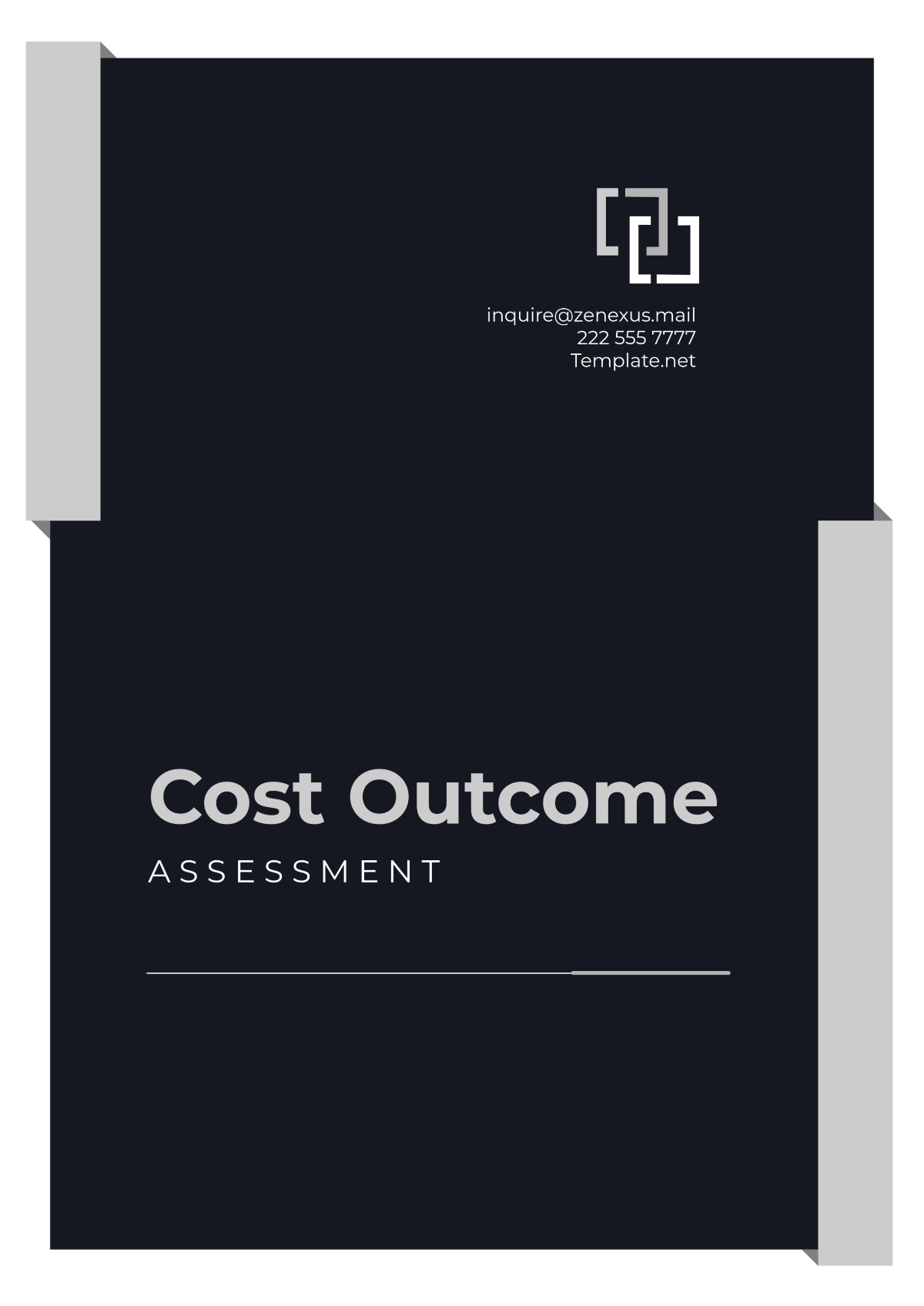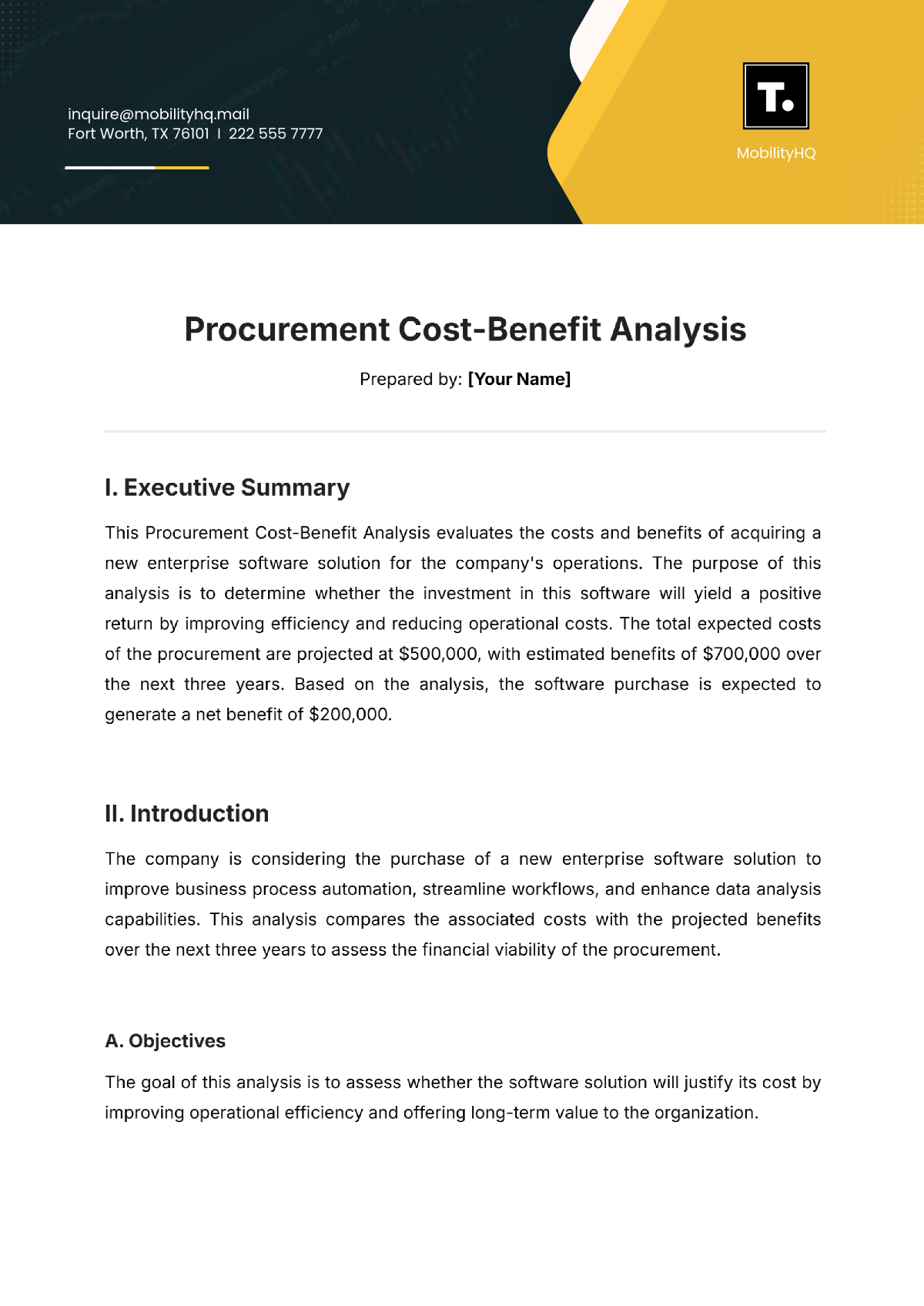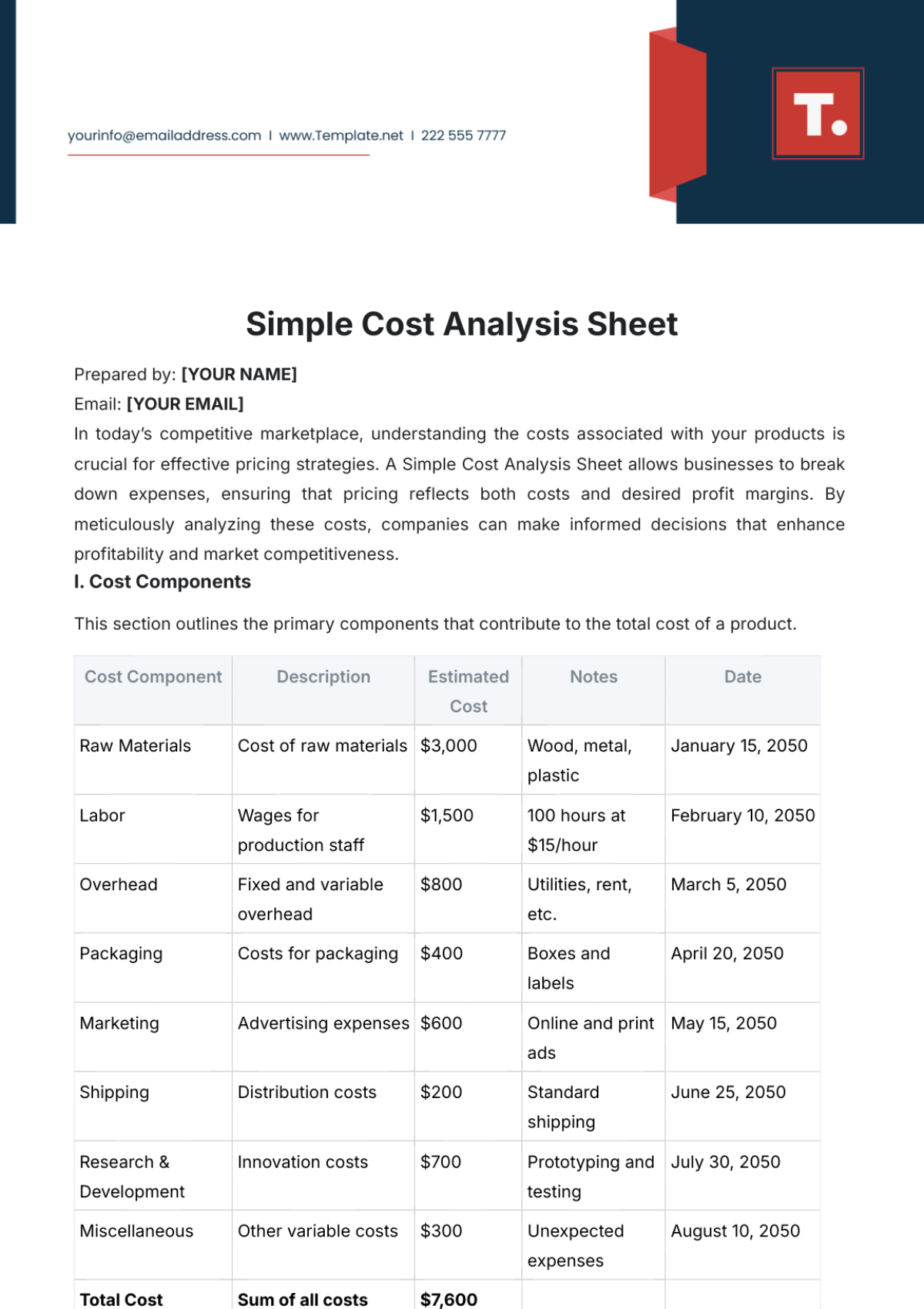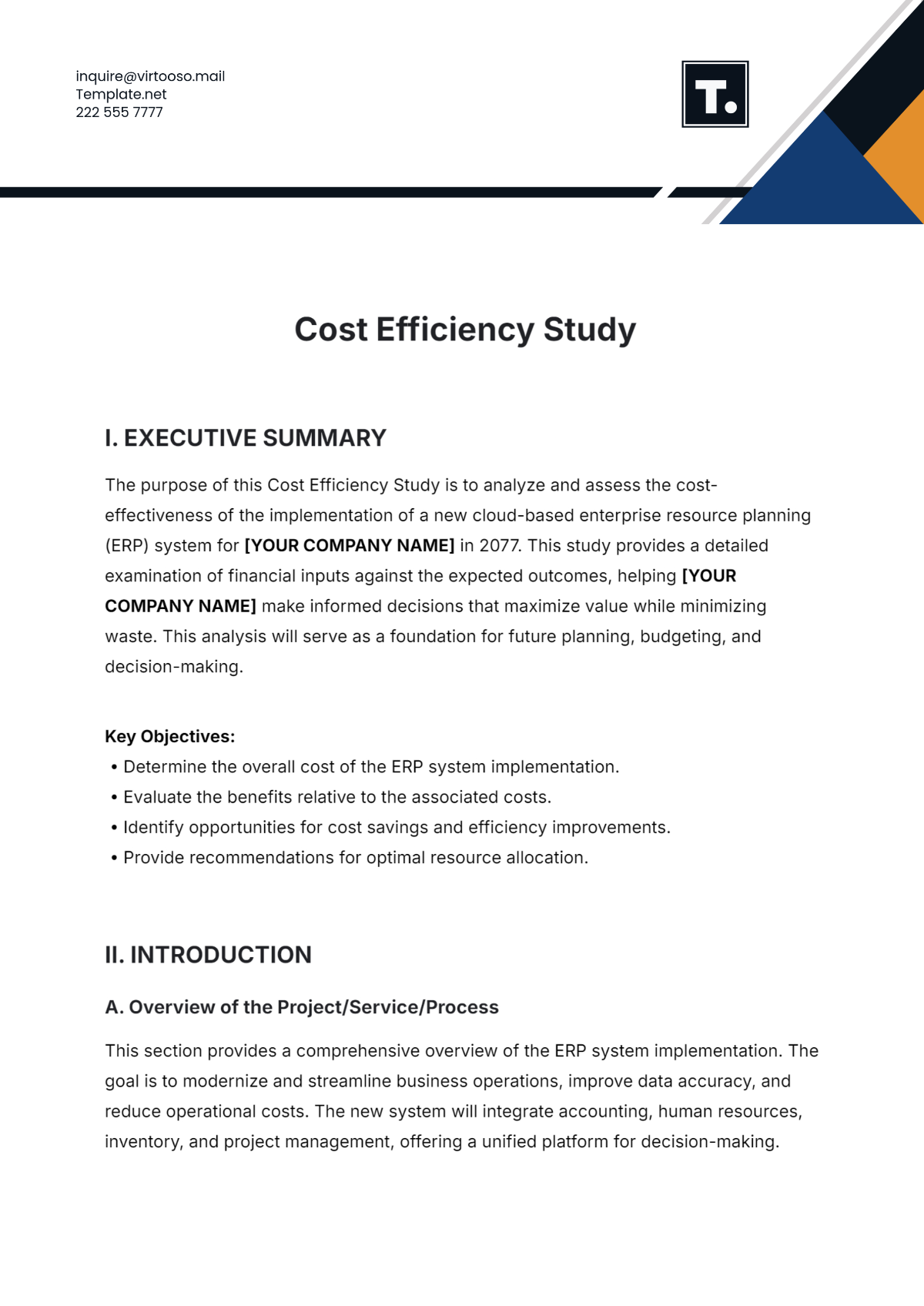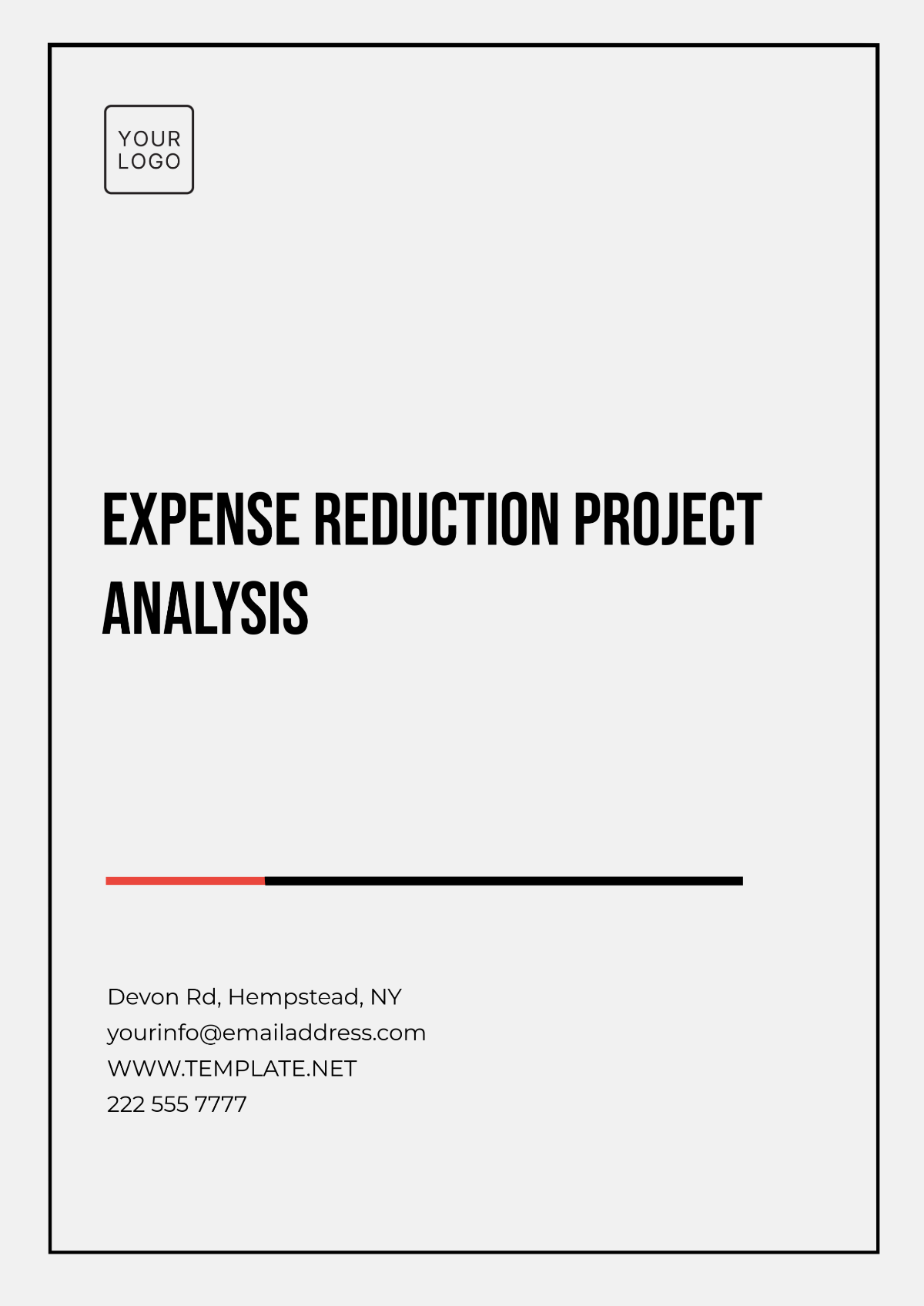Project Impact Analysis
Prepared By: | [YOUR NAME] |
Company: | [YOUR COMPANY NAME] |
Department: | [YOUR DEPARTMENT] |
I. Introduction
A. Overview
This analysis aims to assess the potential impact of the upcoming new product launch on various aspects of our organization.
B. Purpose
To identify and evaluate the effects, both positive and negative, of the new product launch on stakeholders, resources, environment, and overall objectives.
C. Scope
The analysis will encompass a comprehensive examination of the anticipated impact on internal and external stakeholders, financial resources, environmental sustainability, and strategic goals.
II. Stakeholder Analysis
A. Identification
Key stakeholders include customers, employees, suppliers, shareholders, regulatory bodies, and local communities.
B. Interest/Influence Matrix
Utilize a matrix to map stakeholders based on their level of interest and influence regarding the new product launch.
C. Engagement Plan
Develop a plan to actively engage stakeholders throughout the launch process to ensure their concerns are addressed and their support is secured.
III. Environmental Impact Assessment
A. Resource Consumption
Evaluate the potential consumption of natural resources such as water, energy, and raw materials during production and distribution.
B. Ecological Footprint
Assess the ecological footprint of the new product, considering factors such as emissions, waste generation, and product disposal.
C. Mitigation Strategies
Identify strategies to minimize environmental impact, such as implementing eco-friendly production methods, optimizing packaging design, and promoting recycling initiatives.
IV. Risk Assessment
A. Identification
Identify potential risks associated with the new product launch, including market acceptance, competitive pressure, supply chain disruptions, and regulatory compliance.
B. Analysis
Analyze the likelihood and potential impact of each identified risk on the project’s success.
C. Mitigation Plan
Develop proactive measures and contingency plans to mitigate identified risks and minimize their adverse effects on the project.
V. Resource Allocation
A. Human Resources
Determine the staffing requirements and skill sets needed to support the successful launch of the new product.
B. Financial Resources
Allocate budgetary resources for product development, marketing campaigns, distribution channels, and any other associated expenses.
C. Material Resources
Identify and procure the necessary materials and equipment required for manufacturing and packaging the new product.
VI. Impact on Objectives
A. Alignment with Organizational Goals
Evaluate the extent to which the new product launch aligns with the company's strategic objectives and long-term vision.
B. Key Performance Indicators (KPIs)
Define relevant KPIs to measure the success and effectiveness of the new product launch, such as sales revenue, market share, customer satisfaction, and brand recognition.
C. Projected Outcomes
Anticipate the potential outcomes and benefits of the new product launch, including revenue growth, market expansion, and enhanced brand reputation.
VII. Cost-Benefit Analysis
A. Cost Estimation
Estimate the total costs associated with developing, launching, and supporting the new product, including both initial investments and ongoing expenses.
B. Benefits Analysis
Identify and quantify the expected benefits and returns generated by the new product launch, such as increased sales revenue, market share gains, and competitive advantages.
C. Return on Investment (ROI)
Calculate the projected ROI of the new product launch by comparing the expected benefits against the total costs incurred.
VIII. Conclusion
A. Summary of Findings
Summarize the key findings and insights derived from the impact analysis process.
B. Recommendations
Provide recommendations for optimizing the launch strategy, mitigating risks, and maximizing the positive impact of the new product on the organization and its stakeholders.
C. Next Steps
Outline the recommended next steps and action items to be taken based on the findings and recommendations of the impact analysis.




